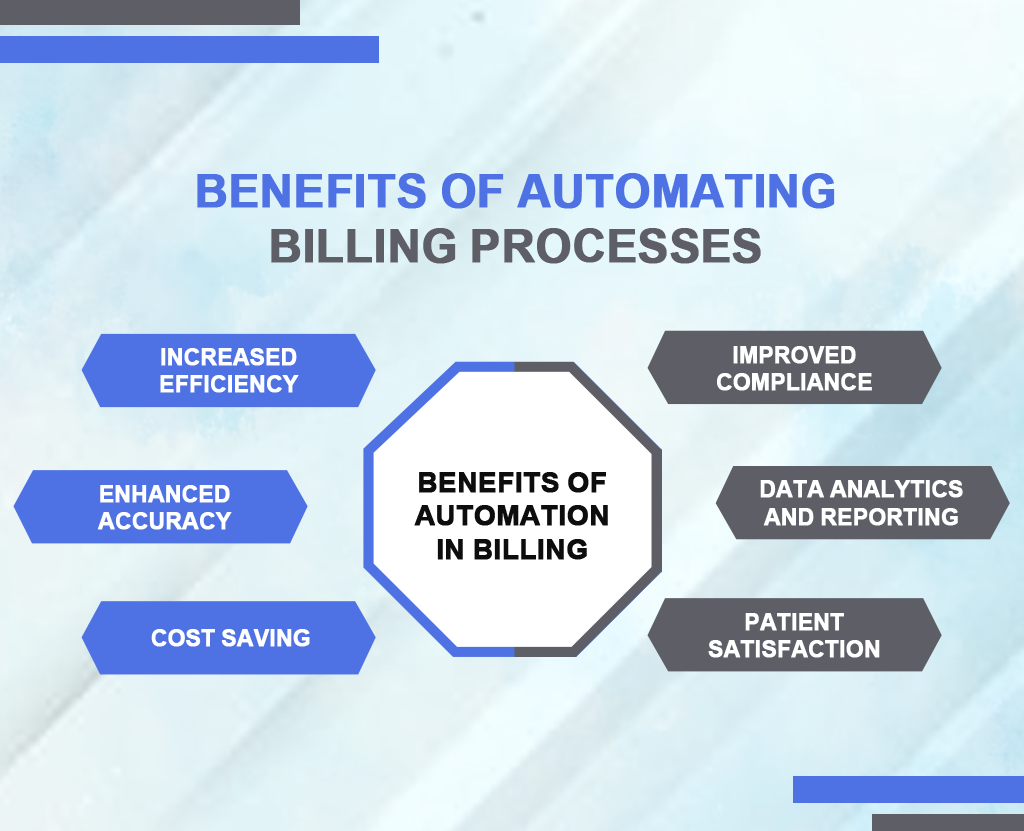People involved in healthcare and patients, in particular, require proper, precise, and effective billing within the multifaceted sphere of medicine. Physician billing services are essential for healthcare providers to receive payments on time and with accuracy. Approximately $30 to $60 billion is wasted on billing errors that can reach up to 80% of medical bills in the United States. They waste their money, leading to dissatisfied patients and increased overall administrative costs.
Physician billing services include checking patient insurance, coding treatments, submitting claims, and following up on denied claims. About 25% of medical claims are refused. This blog post will discuss how automation can help physician billing services and what those perks are.
The Role of Automation in Healthcare Billing
The healthcare business is changing quickly, and automation is changing administrative jobs. These improvements help with healthcare billing, which is very important. Billing automation raises efficiency, correctness, cost, and compliance with rules. As healthcare groups try to streamline operations and cut costs, automation is crucial to improving billing.
Automation Technologies in Healthcare Billing
Automated technologies and systems in healthcare billing include various solutions that help avoid excessive charges for monotonous work.
These technologies include:
Electronic Health Records (EHR) Integration
EHRs capture and store patient information, making retrieving information relevant to billing easier. They also enable the coding process for medical procedures and diagnoses according to the patient’s record.
Claims Management Software
Insurance claims can be taken, submitted, prepared, and tracked through this software. It can alert a practitioner to mistakes before sending a claim, thus minimizing the chances of declined and delayed payments.
Revenue Cycle Management (RCM) Systems
Different billing processes include patient registration, insurance verification, payment posting, and report generation as part of revenue cycle management. It offers timely data and analytical tools, enabling healthcare providers to assess financial competence and recommend improvements.
Robotic Process Automation (RPA)
RPA involves the use of software automation or ‘bots’ to process large amounts of data that are tedious to handle manually, for instance
Data entry, claims management, and posting of payments. These robots can work continuously and would help to reduce or even eradicate overtime working for staff.
Artificial Intelligence (AI) and Machine Learning (ML)
AI and ML can deal with large amounts of information to establish relationships and generate some degree of forecasts. In billing, they can be applied to coding, identifying fraudulent claims, and ensuring the correct feeds while submitting the claims.
The Current Physicians' Clinic Medical Billing Challenges
Medical billing challenges impact revenue, patient satisfaction, and efficiency. Clinics must understand these issues to improve billing and finances.
Complicated Billing and Coding Rules
Medical billing codes, payer regulations, and compliance requirements change often. Physician clinics must monitor ICD-10, CPT, and HCPCS code changes.
Many Claims Denied and Rejected
Medical billing is complex due to claim denials. Coding errors, missing patient data, and insurance verification problems can cause these complications. High denial rates impede cash flow and necessitate extra administrative work.-
Reimbursement Delays
Even when applications are processed appropriately, reimbursement can be delayed. Insurance processing delays, patient billing disputes, and the need for more information might cause these delays.
Payment Issues for Patients
High-deductible health plans make patients pay more for treatment. Due to this transition, patient payment issues such as co-pays, deductibles, and debt have increased.
Technological Limitations
Many medical clinics use obsolete billing systems or no EHR or practice management software. These technical constraints might cause human data entry errors, claim issues, and management issues.
Regulation and Compliance Issues
Staffing and Training
Medical billing professionals must know medical coding, billing processes, and insurance laws. Finding and keeping qualified billers takes a lot of work. Keeping up with billing code and rule changes requires continual training.
Benefits of Automating Billing Processes

The automation of billing processes offers numerous benefits to healthcare providers, including:
- Increased Efficiency
- Enhanced Accuracy
- Cost Savings
- Improved Compliance
- Data Analytics and Reporting
- Patient Satisfaction
Healthcare is evolving, and automation is essential. Technology will boost medical billing and practice management systems. AI, machine learning, and predictive analytics will make billing more flexible and responsive to changing rules and patient needs. These developments are essential for healthcare providers to compete and provide the best care.
Consider Automation For Billing Services
Healthcare providers should look at billing automation now. Improvements, reduction of mistakes, and financial outcomes are rather evident. Automating billing saves the time and effort that your personnel will dedicate to patients.
Automation could boost physician billing services. Medical practices are being transformed by automation, including electronic health records and automated claim processing systems. Physicians may simplify medical billing and improve their financial health while offering excellent patient care by automating.
Contact Resilient MBS and discuss how you can benefit from automation for your billing service needs. Our experience in identifying the problems and opportunities on the field will assist in deploying automated solutions without a hitch. We are equipped and capable of enhancing your billing cycle’s efficiency, increasing your collection rate, or raising revenue.











